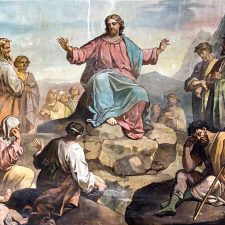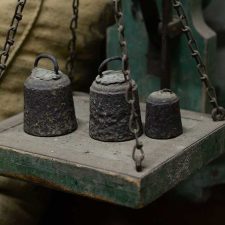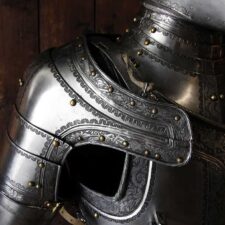In Matthew 13:58, we’re told Jesus did not do many mighty works in His hometown of Nazareth “because of their unbelief.” Why couldn’t Jesus heal in Nazareth?
I’ve heard pastors declare that Jesus couldn’t heal many because Nazareth’s unbelief somehow drained His ability to heal; that He was in some way insufficient to overcome their lack of faith. This teaching is all over the Church! It’s used by Word of Faith preachers to declare if you only had more faith, you’d be healed! And by other less charis-manic preachers, this passage is used as the flagship example to illustrate that Jesus doesn’t always heal. But both these views present their own problems.
Was Jesus Short-Circuited by Unbelief?
Let’s cut to the chase. Jesus did not heal many in Nazareth not because His power to heal was somehow reduced. The towns before and after Nazareth brought their sick and lame to Him, but in Nazareth—due to their unbelief—they did not, therefore not many were healed. Jesus’ power to heal remained consistent; He knew who He was and Nazareth’s unbelief did not potter Him. Nazareth’s cynicism did not shake our Lord’s identity, His faith nor His power to heal. Mark 6:5 speaks of the same moment:
“He could do no mighty work there, save that he laid his hands upon a few sick and healed them.”
But as we read further into Mark 6, we next see Jesus imbuing the apostles with power to witness, deliver and heal the sick all over Judaea. Since the apostles were new to this, I wonder how much of their faith or authority was fueling those healings and deliverances? I would argue “not much” as it likely wasn’t as much their awesome faith as it was Jesus’ authority and His faith that His word would be carried out!
Continuing through Mark 6, Jesus feeds thousands with five loaves and two fish! Did He need the apostles’ faith to do this? Maybe the crowd’s? Of course not.
Then in Mark 6:45-52, Jesus walks on water. Again, did He need the apostles’ faith? They were terrified! They thought they were seeing a ghost! Finally:
53 When they had passed over, they came into the land of Gennesaret and drew to shore. 54 When they came out of the ship, the people immediately recognized him, 55 and ran throughout the whole region, carrying the sick in their beds to wherever they heard he was. 56 Wherever he entered into villages, cities, or country, they laid the sick in the streets, and besought him that they might touch even the border of his garment and as many as touched him were made whole. (Mark 6:53-56)
This response is a stark contrast to Nazareth’s! Gennesaret (pronounced jen·sr·ay) had the faith to bring their sick to Jesus and to reach for the hem of His garment; Nazareth did not. But Gennesaret’s faith in Jesus did not add to Jesus! Gennesaret’s faith in Jesus did not fuel His identity, His faith, His authority nor His power; it fueled their response. And so, by their faith, they positioned themselves to receive their healing. This is what Nazareth failed to do.
But Jesus Doesn’t Always Heal, Does He?
Once you rightly understand what happened in Nazareth, it should pull the legs out from under this single supposed example of Jesus not healing people. The truth is, according to the Gospel record, Jesus healed all who came to Him. There is not a single scriptural example of Jesus trying to heal someone and not being able to, where He shrugs and says, “Well, I guess it’s just not your time.” Even when the apostles failed to heal the epileptic boy, Jesus admonished them for their unbelief and healed the boy (Matthew 17:14-23, Luke 9:37-43). When the apostles ask why they couldn’t deliver the boy, Jesus says, “This kind does not go out but by prayer and fasting.” In other words, their faith was beaten by the dramatic visuals of the boy’s epileptic fit. How we see and what we magnify has a large impact on how we pray and the fruit we see. Therein lies one of the greatest challenges facing every believer across the ages to today.
But yes. To set the record straight, when Jesus prayed, all were healed. Every time. I think the question is, do we know Him, in whose name we pray, and do we believe His words are true.
Remember, it’s the Truth that sets you free.












